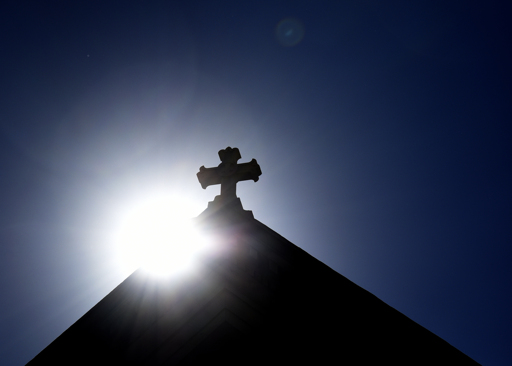The Catholic Church has issued a warning to its clergy in Washington state: Any priest who complies with a new law requiring the reporting of child abuse confessions to authorities will be excommunicated.
https://www.newsweek.com/catholic-church-excommunicate-priests-following-new-us-state-law-2069039



So that paedophiles don’t stay away from confession, so that priests can tell them that god wants them to go to the police as penance. Noone is helped when paedophiles instead keep their mouths shut.
Over here in Germany, therapists may break confidentiality over planned or grave crimes, but are not required to. It’s always a balancing act and from what I’ve heard in the US you can get arrested for telling your therapist that you took drugs which is insane.
Mandatory reporting doesn’t solve problems and while doing that causes a ton of others. There’s a gazillion things you can do to address things, making snitching mandatory is about the least useful and most damaging.
deleted by creator
Don’t know where I got it from, but second google hit: https://www.amahahealth.com/blog/can-i-talk-to-my-therapist-about-my-illicit-drug-use/
So if they figure that you are in a state where you might be leaving needles behind at playgrounds, they have to report you. They have no leeway to say “I can convince this guy to be more mindful”. That alone wouldn’t be that bad, but if you’re in a downward spiral, “causing harm to yourself”, they also have to report you. Which, given the state of the US criminal justice system, is going to do even more harm. The whole thing is unethical AF.
[citation needed]
I mean not the matter of habit covering up thing particularly when it comes to the Catholic Church, but e.g. Lutherans also take confessions and over here the EKD very much had not that kind of issue: Abuse exists, as it does everywhere, but it did not have institutional backing, much less wide-spread. When one instance of one superior covering for one subordinate came to light they stepped on it hard and passed new laws that include mandatory reporting – but not when it comes to confession. “See something, do something”, yes, but not “Take confession, do something”.
It’s that kind of thing the Catholics should be criticised for – somehow the Lutherans had several magnitudes less of a problem, and yet reacted magnitudes more decisively when it comes to stopping it, making sure that church structures don’t turn into a criminal conspiracy. Lifting or not lifting the seal won’t do anything to institutional rot. You’re focussing on the wrong thing.
I’m a medical student in America and we’re required to know some of the legal cases that define our standards and practices. The legal precedent that requires the breach of confidentiality to report a patient for being a danger to themselves or others is the Tarasoff case.
A patient has to be a direct threat to themselves or others in terms of suicide, self-harm, assault, or murder (i.e. meaningful bodily harm) to justify the breach of confidentiality.
The TL;DR of the Tarasoff case was a patient was talking to his physician about wanting to kill his stalking target and then he did so. The precedent means that a physician is required to notify the potential victim and/or the police if a direct threat is made.
deleted by creator
Did some further googling and it appears that what I remember might apply to a) school councillors and the like, and b) law enforcement getting reports about type of treatment after they dropped someone off. Why law enforcement is doing EMT stuff is of course yet a whole another topic.
And that’s exactly how German law sees it: Breaking confidence is permitted in certain cases, but not mandated. On the flipside, if you’re e.g. a cop or a child care worker, when you see certain things you are required to pursue them, that’s different in e.g. the Netherlands where cops are free to ignore you if you light up a joint in front of them, and tell them about it, and don’t even hide it in a brown bag. People taking confessions including therapists are neither of those, though, so they do not have that kind of duty.
Law will never be able to cover, in detail, the balancing process necessary to actually reduce harm in any specific case. It is a very blunt instrument.
You’re exchanging one absolute for another. The original absolute btw, not being that absolute because catholic priests can tattle anonymously (if the state allows for such things, different topic), and then themselves confess. But it should never be a “hear X, do Y” kind of deal. That doesn’t serve the situation.